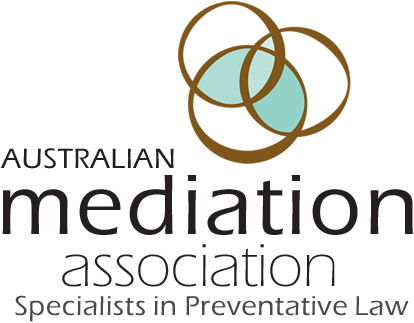FAQs
If there's anything else you need to know about our Mediation Programs..
How do I become an accredited mediator?
The requirements for accreditation via training are set out at section 2 of the Approval Standards and include:
- Complete a training course of a minimum of 38 hours with a provider whose course meets the training standards detailed at 2.3 of the Approval Standards.
- Undertake an assessment of at least 1.5 hours in length (2.4 of the Approval Standards).
- Apply to an RAP for accreditation, providing evidence of the above training. Assessment as competent, good character references, professional indemnity insurance and undertakings to comply with the Standards.
Our online mediation programs meet the Approval standards under the National System to apply for accreditation.
Will these courses enable me to become accredited under the National System – NMAS?
Yes – Assessment for National Accreditation will be by way of a 90 minute role-play.
Participants will have the opportunity to undertake accreditation assessment on a single day. This is on the Saturday directly following the 5 day face-to-face program. Alternatively at a convenient time for online course participants, at a cost of $550.00 (including GST)
What about becoming a Family Dispute Resolution Practitioner?
Our Gateway program means that having gained accreditation under the Australian Mediation and Dispute Resolution Accreditation System (see information about approval under AMDRAS here), participants are entitled to undertake competency in the six compulsory units from the Vocational Graduate Diploma or Graduate Diploma of Family Dispute Resolution (or the higher education provider equivalent).
As a result participants becoming accredited as a Family Dispute Resolution Practitioner.
What are the costs of the mediation programs and how do I register?
What benefits do mediation standards bring?
A profession can be properly self-regulated from a quality perspective. The role of the profession is guided by the Australian Mediation and Dispute Resolution Accreditation System Board. This can be focused on issues protecting users and professionals.
(The AMDRAS Board is responsible for the ongoing development and maintenance of the Australian Mediation and Dispute Resolution Accreditation System).
In the case of mediation, this includes enshrining confidentiality and privilege in law. Also supporting and implementing ethics considerations and encouraging use of mediation in court process. Lastly, the enforceability of settlements.
This enables a proper balance to be struck. A balance between the responsibility of the profession to self-regulate efficiently and the role of improving the environment for the profession. Allowing this environment to develop while the consumer of the professional services, and the professionals themselves, are properly protected.
What work opportunities are there as a mediator?
There is an increasing use of mediation and other forms of alternative dispute resolution in Australia.
People who undertake mediation training vary to the extent that they find opportunities as a mediator. Some may find salaried roles within government or not for profit agencies. Others use their professional networks to build private mediation consultancy businesses, which may include offering other related professional services.
Others pursue further academic studies and careers, or use their mediation skills in roles such as working in human resources. As with many areas of study, it is very dependent on the individual - on their expectations, skills, flexibility, entrepreneurship and opportunities.*
Please visit our Careers page for job opportunities.
*this information courtesy of www.msb.org.au

